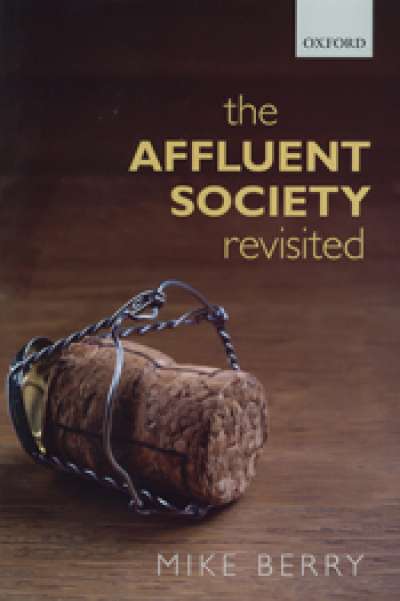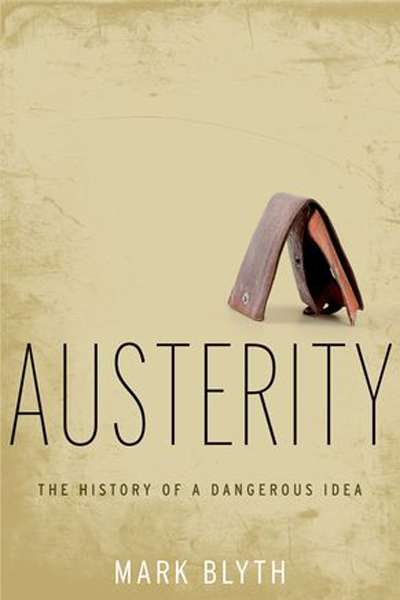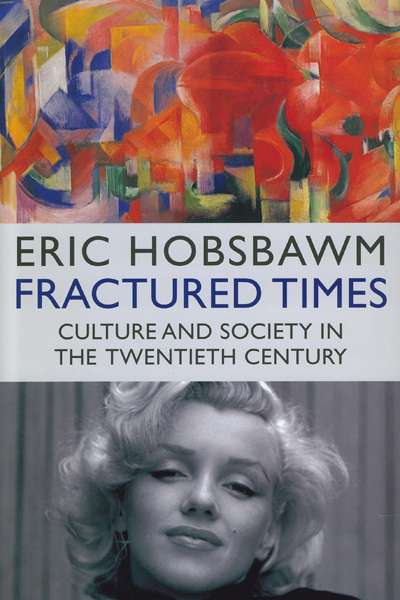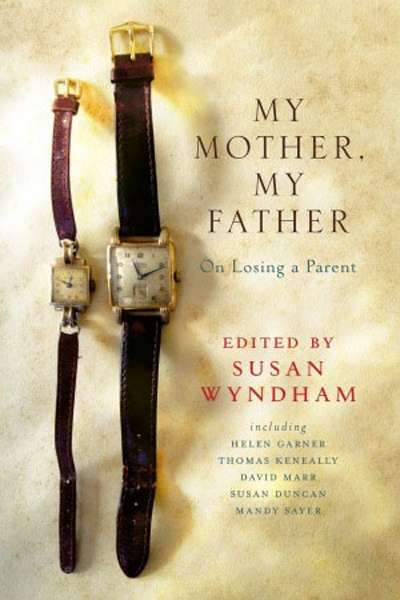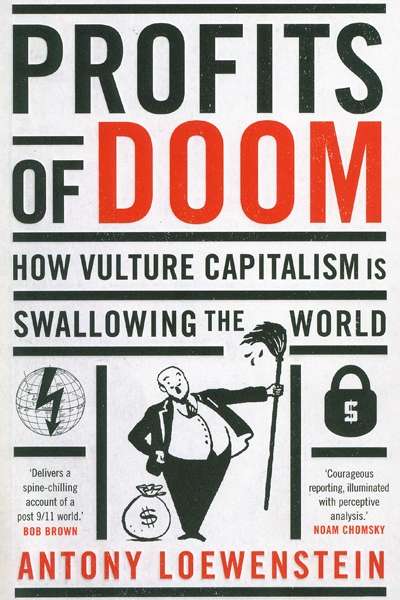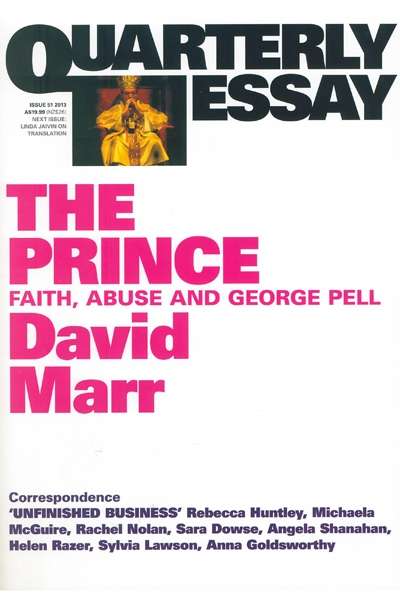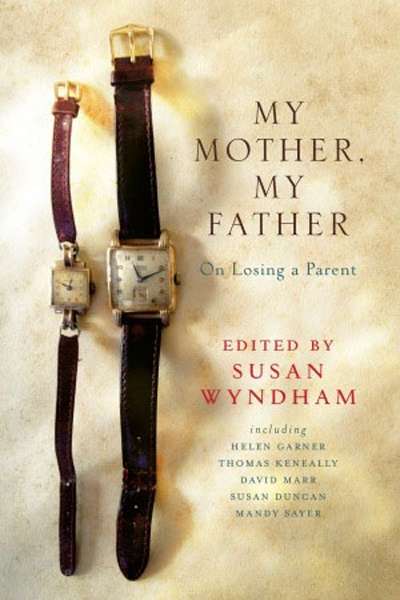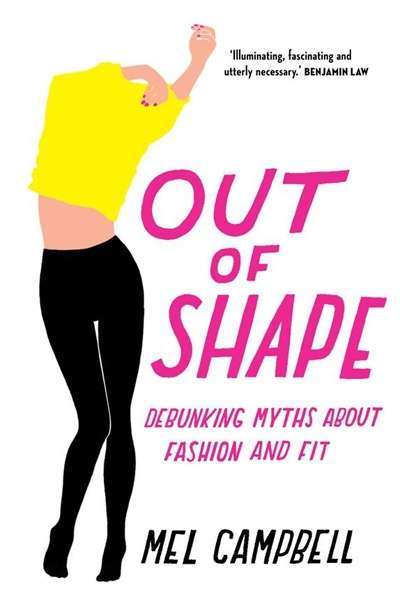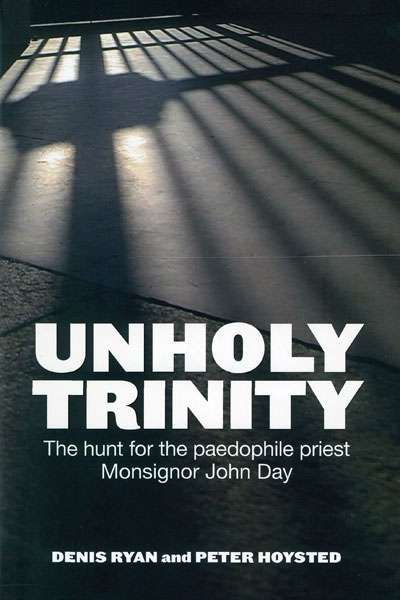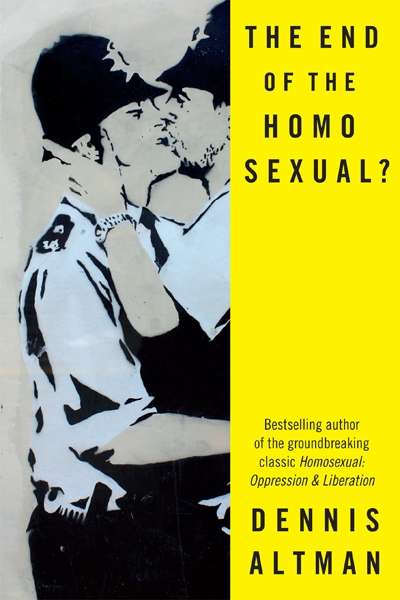Society
Usually, significant books are revisited on significant anniversaries. By these lights, Mike Berry’s critical re-evaluation of John Kenneth Galbraith’s The Affluent Society should have appeared in 2008, to mark the fiftieth anniversary of its original publication. In this instance, we can be grateful that normal publishing practice has not been followed, for it enables Berry to incorporate the momentous events of the past five years into his analysis and to interrogate the insights that Galbraith’s scholarship might bring to bear on the causes and repercussions of the Global Financial Crisis that hit shortly after the great economist’s death in 2006.
... (read more)Should state spending on government be more restricted, or is it private financial institutions that should pay? Adrian Walsh writes about fresh controversies over international austerity programs.
Fractured Times: Culture and society in the twentieth century by Eric Hobsbawm
As he approached his fiftieth birthday, Eric Hobsbawm finally won recognition. His Primitive Rebels (1959) was an innovative study of millenarian rural movements. In 1962 he published The Age of Revolution, the first of four books that encompassed the modern era with unrivalled powers of synthesis, and his volume on Labouring Men (1964) gathered up incisive essays on labour history that had appeared over the previous decade. Hobsbawm’s academic career, which had been held back by membership of the Communist Party, was prospering: in 1959 he was promoted to Reader in History at Birkbeck College in London. He worked as the jazz critic for the New Statesman, and in the same year Penguin published his wide-ranging account of The Jazz Scene.
... (read more)In A Heartbreaking Work of Staggering Genius (2000), novelist Dave Eggers recounts the horror of losing both his parents within one year, leaving him and his sister as sole carers of their young brother. Eggers recalls the intense pain of being orphaned at the age of twenty-one, but also the frustration and acute resentment at having to grow up too fast.
... (read more)One of the literary legacies of the financial crisis is a type of travel writing focused on the local social, economic, and environmental effects of unfettered global capitalism. There are two types of such books. Michael Lewis is perhaps the best known and most widely read author of the first kind, in which the reporter becomes a kind of tour guide to the financial freak show. In Boomerang (2011), Lewis shows how greed overwhelmed both the lenders and the borrowers of cheap money in places like Iceland, Ireland, and the United States. Reading him is like watching the circus through binoculars. The spectacle is both vividly close and comfortably distant; we enjoy the show but feel no direct involvement in the unfolding action.
... (read more)The Prince: Faith, Abuse and George Pell (Quarterly Essay 51) by David Marr
Church leaders have rarely become national public figures, let alone objects of political contention, in Australia. Since Federation, the number who could be so described can be counted on fewer than the fingers of one hand. There is Ernest Burgmann, the Anglican prelate who earned the sobriquet ‘the red bishop’ for his espousal of left-wing causes during the Depression. Much better known is Daniel Mannix, the long-serving Catholic Archbishop of Melbourne, whose interventions in controversies ranging from conscription campaigns during World War I to Cold War agitation over communist influence in the Labor movement implicated him in two of the ALP’s great splits. And now there is George Pell, Catholic Archbishop of Sydney, a cardinal and a man who is capable, as Mannix was, of arousing both hero worship and intense fear and loathing.
... (read more)In A Heartbreaking Work of Staggering Genius (2000), novelist Dave Eggers recounts the horror of losing both his parents within one year, leaving him and his sister as sole carers of their young brother. Eggers recalls the intense pain of being orphaned at the age of twenty-one, but also the frustration and acute resentment at having to grow up too fast ...
... (read more)Out of Shape: Debunking Myths about Fashion and Fit by Mel Campbell
Much has been said about our tendency to feel bad about our bodies, but not quite in the way Mel Campbell goes about it. The fit of clothes is a more interesting, if more elusive, cultural story than the predictable outrage over fashion’s ever slimmer bodies or recent storms about ‘plus size’ models. Out of Shape addresses these controversies but also goes to the frontline of fashion and fit: malls, big-brand manufacturers, and their fraught strategies for streamlining a comprehensible – and marketable – logic between clothing size and the heterogeneous human body. Though it is her first full-length work, the book explores a question that Campbell has been pondering in blogs, journalism, and reviews for years: why can finding clothes that fit well feel so torturous?
... (read more)Unholy Trinity: The Hunt for the Paedophile Priest Monsignor John Day by Denis Ryan and Peter Hoysted
Many people have heard of Gerald Ridsdale, defrocked Catholic priest of the diocese of Ballarat and a notorious convicted paedophile. But comparatively few people have heard of Ridsdale’s contemporary John Day. A priest in the same diocese, he too preyed upon many hundreds of children who came under his pastoral care. Ridsdale, who for a time served as Day’s curate in Sacred Heart parish, Mildura, is in prison; Day, however, officially remained a priest in good standing until his death in 1978 at the age of seventy-four. He was only temporarily removed from active ministry and never faced court for his crimes. This was not because they were never investigated, but because church and state colluded to suppress public knowledge of them.
... (read more)Dennis Altman’s major work, Homosexual: Oppression and Liberation was published in the 1970s, first in the United States (1971) and then in Australia (1972). It was fortuitous timing; along with Germaine Greer, Dennis Altman became the intellectual face of sexual liberation in Australia and abroad. Altman and Greer shared a stage at a crowded and sweaty January 1972 sexual liberation forum at Sydney University. Photographs show the audience spilling onto the stage, with Altman’s raffish features offset by Greer’s languid beauty. Arguably, Greer has gone on to greater celebrity and notoriety, as she has drifted from her academic and activist roots. Altman, as he notes in this book, has continued to combine activism and an academic career. In many ways, this book is an extended reflection on that trajectory, now into a fifth decade.
... (read more)

